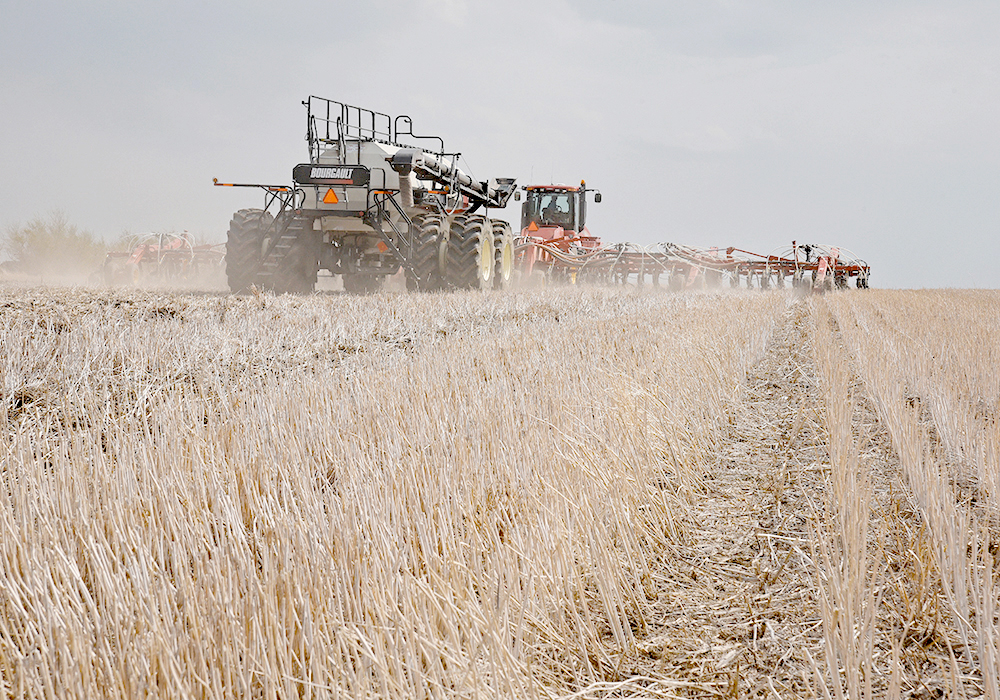The Sustainable Canadian Agricultural Partnership (SCAP) is a key pillar in fostering Canada’s ongoing modernization, development and prosperity.
This partnership represents a substantial investment of $3.5 billion over a five-year period (2023-28) by all levels of government. The aim is to bolster innovation, competitiveness and flexibility within the agricultural food and product sector.
This project encompasses $1 billion dedicated to federal programs and initiatives, along with $2.5 billion allocated to programs and activities that are jointly financed by the federal, provincial and territorial governments. If you operate a farm or are interested in applying for funding through SCAP, be aware of the application process and reporting requirements.
Read Also

Invigor Gold variety viewed as threat to condiment mustard
Invigor Gold, the canola-quality mustard developed by BASF, is on a collision course with Canada’s condiment mustard industry. It’s difficult to see how the two can co-exist.
The structure incorporates a robust set of business risk management initiatives designed to help farmers manage substantial risks that could jeopardize their farm’s sustainability. AgriStability safeguards Canadian farmers from substantial drops in agricultural income due to factors like production loss, rising costs and market conditions.
The costs of AgriStability are shared between the federal and provincial governments on a 60/40 basis.
SCAP relates to financial reporting in several ways. First, it involves significant financial investments from the government. As such, there is need for transparent and accurate financial reporting to ensure funds are being used effectively and efficiently. This includes reporting on how funds are allocated, how much is spent on different initiatives, and the outcomes of these investments.
Furthermore, SCAP promotes sustainable agricultural practices, which can have financial implications for farmers and agricultural businesses. For example, transitioning to more sustainable practices may require upfront investments, but could potentially lead to cost savings in the long term.
Financial reporting can help track these costs and benefits, providing valuable information for decision-making. Additionally, SCAP may also have implications for the financial reporting of companies in the agri-food sector. Companies will need to report on their participation in programs, the impact of these programs on their operations and how they are contributing to the goals of the SCAP.
Finally, financial reporting can also play a role in accountability and evaluation of SCAP. Clear and accurate financial information can help to assess the effectiveness of the program and inform future policy decisions.
These programs aim to support adoption of innovative technology that optimizes farm efficiency, minimizes agricultural waste, advances digitalization of operations and/or gathers information that will help farmers enhance their operations. Funding streams can be aimed at primary producers for programs that cover a broad range of expenses for grain and livestock operations focused on technology, efficiency and farm equipment.
The funding programs can be used to offset major costs associated with modernization and digitization of farming operations.
In conclusion, SCAP is a significant initiative that aims to modernize and develop Canada’s agricultural sector. It has implications for financial reporting and promotes sustainable agricultural practices that can have financial implications for farmers and agricultural businesses.
Navigating these programs can be confusing, as can be the financial reporting requirements. Reach out to a trusted adviser for support in securing funding.
Colin Miller is a chartered accountant and partner with KPMG’s tax practice in Lethbridge. Contact: colinmiller@kpmg.ca.















